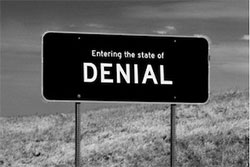
I have been thinking about where our public policies originate.
In the last 25 years we have lived (i.e. taken up legal residency, rented or bought a home, put our kids in the local schools and really lived like a local) in the UK, US, Canada, Belgium and the Cayman islands. Despite the surface differences it is amazing how similar the tax, legal and public policy landscapes between these countries are – it is even more amazing how fast they are all moving towards identical public policy positions across the board.
The point of a representative democracy is that the policies of the government should represent the will of the majority of the voting public. In the western world the major public policies do not.
I am not making a moral judgment about mass immigration and tolerance of illegal immigration or the net zero policies, the coming restrictions on cars and freedom of movement, the removal of cash and the reliance on digital financial transactions and the expansion of the surveillance state, compulsory medical treatment and the sexualization of children. Well. Ok – I will make a moral judgment on the sexualization of children – that is objectively evil and everyone involved should be arrested and face criminal charges.
The majority of these policies may be morally right or morally wrong. My moral judgment of them is not relevant. These are policies that will have a huge effect on our societies and none of them have originated within the electorate that has to vote upon them.
Where do they come from? Why are they a part of the policy landscape? Why does every major political party in almost every western country (and many others) end up adopting the same position on these issues?
It is hard to ignore the fact that there is a coordinated set of global political policies that are oblivious to the will and desires of the local electorates that our politicians are presenting to us as a fait accompli.
In effect, all of our national parties are just divisions of the single international political party. Local (national) elections are cosmetic popularity contests to choose the most photogenic or charismatic mouthpiece of the same unchosen, relentless, largely unpopular policies. There is no point in having a democracy if it is not a representative democracy.
All of these policies are represented as an essential reaction to some existential moral or life and/or planet threatening crisis and are placed in opposition to some hateful and irrational ‘phobia’ or act of ‘denial’ and that any resistance to these policies is somehow reprehensible. I think I might be a phobia-denier or a denialophobe – am I beyond redemption?.
Each time we vote for a party with these positions it legitimizes a set of policies that we did not choose and do not want.
Who do you vote for? Do you feel that their policies originate from local desires and needs? What are your thoughts?
I would like to hear from you.

Comment On This Post